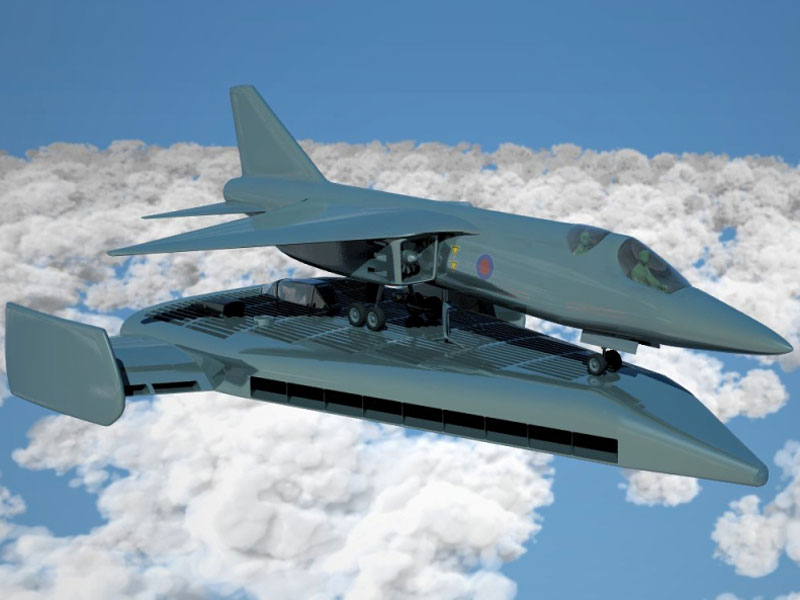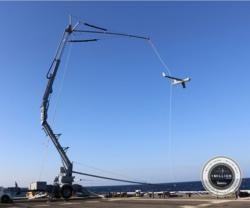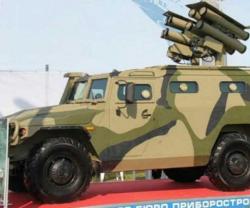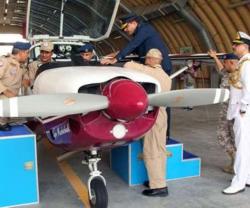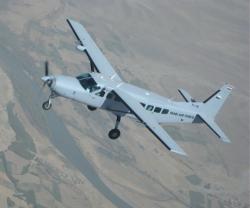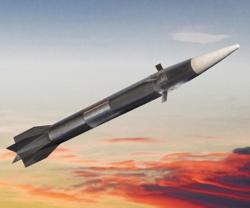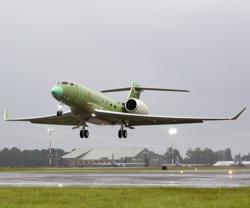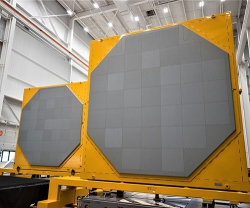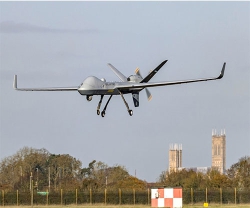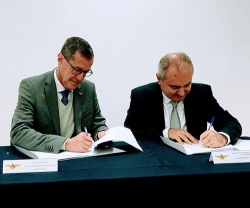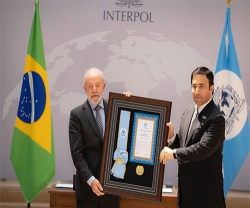BAE Systems Celebrates 1960s “Thunderbirds” Projects
24.06.2013 Europe
A hypersonic space-plane capable of travelling at five times the speed of sound, a jeep that leapt over enemy blockades, and a commercial aircraft able to take off and land vertically in densely populated cities, are just some of the 1960s inventions unearthed in BAE Systems’ archives.
Coinciding with the opening of a new centre to celebrate heritage at the Company’s military aircraft factory in Warton, Lancashire, some unique documents from the archives have been brought to life through animation to show how the R&D projects might have looked if developed further. The unique designs were produced by engineers in BAE Systems predecessor companies including English Electric, Hawker Siddeley and the British Aircraft Corporation.
Howard Mason, Heritage Manager at BAE Systems said: “Although 50 years have passed since these extraordinary designs were first put to paper, we can see how some of the technologies and ideas were developed over time and put to use now in aircraft like the F35 Joint Strike Fighter. Aircraft and vehicle engineering involves producing and analysing literally thousands of iterations and whilst today the process is speeded up through the use of computer modeling, it’s fascinating to look through our archives and see what engineers were working on at that time.”
“BAE Systems stores more than one million historical documents and art-facts and, in addition to celebrating our nation’s engineering achievements, I believe these examples of forward thinking are still inspiring for young people who are thinking about a career in engineering and considering the endless possibilities of what could be designed,” he added.
Research and development is a hugely important part of BAE Systems’ defence, aerospace and security business, with the company investing £150 million of its own capital in R&D in 2012.
THE HYPERSONIC AIRCRAFT: In 1964 the British Aircraft Corporation (BAC) designed a hypersonic aircraft capable of flight at five times the speed of sound, nicknamed MUSTARD (Multi-Unit Space Transport And Recovery Device).
THE INTERCITY VERTICAL-LIFT AIRCRAFT: The Intercity Vertical-Lift Aircraft design from the Hawker Siddeley company was an attempt to bring vertical take-off and landing (VTOL) to commercial aircraft, to allow airlines to put airports amongst densely-populated cities, open up more direct travel for passengers and to cut down on the amount of space required for airport runways.
THE ‘JUMPING JEEP’: The ‘Jumping Jeep’ was a concept reconnaissance vehicle capable of leaping over obstacles - a 4x4 transporter flanked by 12 vertical lift fans, whose angle could be adjusted dependant on the situation - allowing the jeep to overcome enemy barriers.
THE FIGHTER JET TAKE-OFF PLATFORM: The Fighter Jet Take-Off Platform was a concept platform that would rise vertically from the ground, and allow an aircraft to take-off from its back - allowing planes to operate from small airstrips or narrow forest clearings.
Coinciding with the opening of a new centre to celebrate heritage at the Company’s military aircraft factory in Warton, Lancashire, some unique documents from the archives have been brought to life through animation to show how the R&D projects might have looked if developed further. The unique designs were produced by engineers in BAE Systems predecessor companies including English Electric, Hawker Siddeley and the British Aircraft Corporation.
Howard Mason, Heritage Manager at BAE Systems said: “Although 50 years have passed since these extraordinary designs were first put to paper, we can see how some of the technologies and ideas were developed over time and put to use now in aircraft like the F35 Joint Strike Fighter. Aircraft and vehicle engineering involves producing and analysing literally thousands of iterations and whilst today the process is speeded up through the use of computer modeling, it’s fascinating to look through our archives and see what engineers were working on at that time.”
“BAE Systems stores more than one million historical documents and art-facts and, in addition to celebrating our nation’s engineering achievements, I believe these examples of forward thinking are still inspiring for young people who are thinking about a career in engineering and considering the endless possibilities of what could be designed,” he added.
Research and development is a hugely important part of BAE Systems’ defence, aerospace and security business, with the company investing £150 million of its own capital in R&D in 2012.
THE HYPERSONIC AIRCRAFT: In 1964 the British Aircraft Corporation (BAC) designed a hypersonic aircraft capable of flight at five times the speed of sound, nicknamed MUSTARD (Multi-Unit Space Transport And Recovery Device).
THE INTERCITY VERTICAL-LIFT AIRCRAFT: The Intercity Vertical-Lift Aircraft design from the Hawker Siddeley company was an attempt to bring vertical take-off and landing (VTOL) to commercial aircraft, to allow airlines to put airports amongst densely-populated cities, open up more direct travel for passengers and to cut down on the amount of space required for airport runways.
THE ‘JUMPING JEEP’: The ‘Jumping Jeep’ was a concept reconnaissance vehicle capable of leaping over obstacles - a 4x4 transporter flanked by 12 vertical lift fans, whose angle could be adjusted dependant on the situation - allowing the jeep to overcome enemy barriers.
THE FIGHTER JET TAKE-OFF PLATFORM: The Fighter Jet Take-Off Platform was a concept platform that would rise vertically from the ground, and allow an aircraft to take-off from its back - allowing planes to operate from small airstrips or narrow forest clearings.
Previous PostMBDA Unveils New Solution to Reshape Surface Combat
Latest news
Latest events
Paris Air Show
16 - 22 Jun 2025Paris Le Bourget - FranceDefenPol China2025 - 7th Guangzhou International Defense & Police Exhibition & Summit
11 - 12 Jul 2025Nan Fung International Convention & Exhibition Center (NICEC) - ChinaIDEF 2025 Turkey - International Defence Industry Fair
22 - 27 Jul 2025Istanbul Expo Center - TurkeyDSEI 2025
09 - 12 Sep 2025Excel, London - United Kingdom

